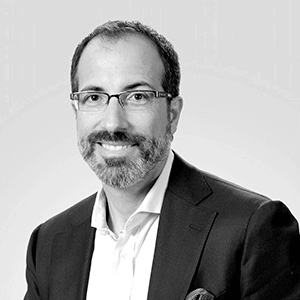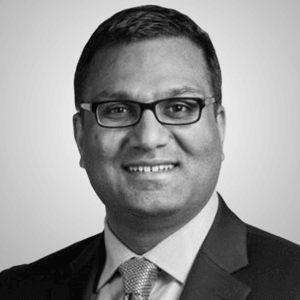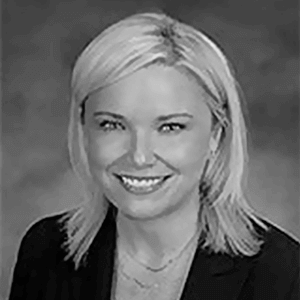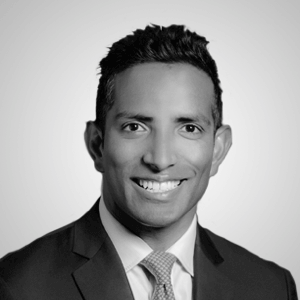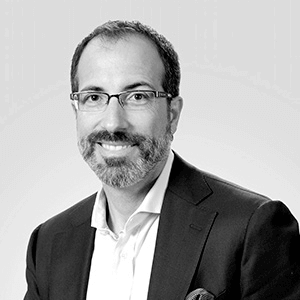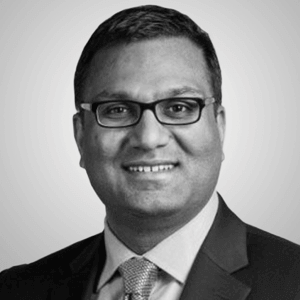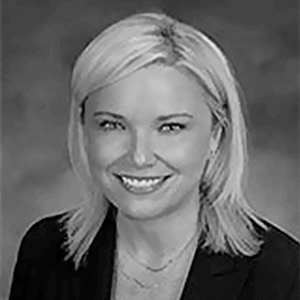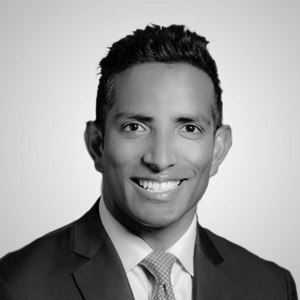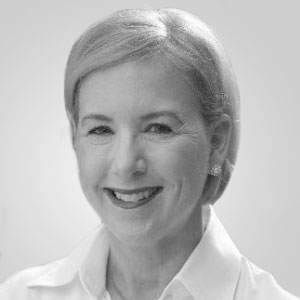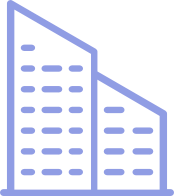
― COMPANIES
Access, interpret, and leverage new data. The EQITII platform gives companies a way to unlock the data generated operational equipment, Internet of Things (IoT) sensors/devices, and everyday human behavior.

― INDIVIDUALS
Protect privacy and monetize data. Selling data on the EQITII Marketplace gives people control of their information. Data creators decide who gets access to their data – and at what price.

― EVERYBODY
Buy and sell data on a fair and open market. EQITII allows companies and individuals to exchange data via secure transactions. People maintain data rights. Companies get the data they need to innovate.
Digital distrust is a problem for culture, economics, and progress. It impacts the whole of humanity. Restoring trust can restore vitality to our world
Data is essential
for preserving our ways of life.
Decentralized. Democratized.
Each day, millions of people generate “little data.” Once aggregated, little data becomes big data.
For companies, big data streamlines systems and increases operational efficiency. For humanity, it helps preserve resources, anticipates and prepare for disasters, and can even be used to cure disease. But big data can only solve these problems when it’s used effectively.
Today, big data is not being used effectively. It’s too centralized, too siloed, and too fragmented.
Technologies like IoT, AI, automation, blockchain, and mixed reality would not be possible without the constant flow of small fragments of little data. However, harvesting that little data is a complex process. Its complexity is compounded by industry, geography, politics, culture, access, and lack of trust. Addressing these challenges requires cooperation and collaboration. A fair, open, secure data market offers both. Legacy data business models are coercive, opaque, and rife with friction. Not so on the EQITII Marketplace. Here, data belongs to its creators. It is theirs to share and to monetize. At the same time, organizations can access the data they need to solve business problems, fulfill their missions, and improve our world.
Now is the time to democratize data.
What does it mean to “democratize” data?
The same technology that made data the capital asset of the 21st century can and should create value for data creators – the true owners of data. What’s more, they shouldn’t have to pay fees to perform transactions. That’s what it means to democratize data. Making it happen requires the following:
― 01. FAIRNESS
Individuals hold the rights to their data. They can choose to share data securely, privately, easily, and efficiently on their own terms and with parties of their choice.
― 03. ACCESS
One company’s discarded data is another company’s asset. By providing access to data that others can’t use, EQITII eliminates data waste and enables new revenue streams.
― 02. OPENNESS
A global, open market empowers all individuals and organizations, regardless of size, wealth, and status. It also increases trust, fosters community, and rewards cooperation.
― 02. CURRENCY
Data is more than an asset – it’s acurrency. An open, accessible market empowers data owners to recognize and benefit from the valuable data they generate each day.
These are the three pillars of data rights

Data belongs to its creators. On the EQITII Marketplace, creators decide how, by whom, and through which means their data is collected. Specifically, they designate the rights they want to release, control how their data is used, and specify the value of their data.
Data owners should feel confident that the data they exchange is secure. EQITII ensures security via:
- Secure Peer-to-Peer Transactions: Only data owners and approved data buyers can view or use data. If the owner trades data with more than one entity, each channel is encrypted separately.
- Enforced Rights: Smart contracts enforce data rights and ensure data is used only as owners designate.
- Watermarking: Data watermarking makes it possible to track data should it ever leave the platform.
- No Centralized Data Store: Data is not stored anywhere in the platform. A distributed ledger logs only the transaction record and settlement purposes. The only parties that can store data are the data owner and persons or organizations to whom the owner has provided access.
CONTENT FOR COMPENSATION EQITII enables data owners to receive fair compensation for their information. Buyers make offers through the Marketplace. Sellers accept or reject the offers while maintaining control of data rights. There are no transaction fees, and data owners do not share their compensation.
Benefits
Efficient, secure, and private – the EQITII Marketplace is the world’s most accessible and effective network for trading data rights.
Individual data owners are guaranteed privacy, security, and compensation. They can profit from the valuable data – the currency – they generate every day. All of their data stays private, unless they choose to share it.
- Companies gain access to data that allows them to open new revenue streams, innovate, and grow. By eliminating the third-party middleman, EQITII helps companies engage in cost-efficient transactions.
- Our compensation model, empowers data owners to share their data with any organization they choose. Transactions are secure, so there’s no fear of data ending up in the wrong hands or being viewed, touched, or misused by a third party.
- It’s an equitable exchange through a distributed system that eliminates costly transaction fees.
The platform is based on the Hyperledger Sawtooth and is customized to meet the needs of an open, public, distributed network.
Network Elements
Service peers, or nodes, powered by Hyperledger Sawtooth communicate with client nodes. These client nodes may integrate into a DApp (Distributed Application) or can be collocated with a peer node and/or accessed via a web browser.
Each node instance is distributed as a Container Image and consists of the following major elements:
- Nodes manage the blockchain, smart contracts, data exchange, and communication with a KYC provider.
- Wallet and wallet interfaces.
- Integrated web server
- Configuration modules for configuration of local services and databases
- Access control module – this element can set up access control within organizational units, for example
- SDK and tools
The Marketplace API
Developers can build vertical applications on an open, secure, private and free integration point for existing and emerging data pipelines.
It features:
- RESTful APIs for development of vertical applications on EQITII platform
- Marketplace UI integrated with an Android/iOS wallet application for use by consumers who want to sell data
- Platform independent and fully functional application examples distributed in the container image
Board of Advisors
Jay Burrell
SVP Digital Technology and Software CTO, GE Healthcare
Jay has held leadership positions in some of the world’s leading technology companies. Prior to his current position as CTO for GE Healthcare, Jay held positions at Equifax, Inc. as the Senior Vice President -Communications, Video and Utilities Business Unit; The IBM Corporation as Global Vice President of The IBM Cloud; FusionOne, Inc. as Executive Vice President; Nokia Corporation as Vice President of Worldwide Sales; Siemens AG as Vice President of Sales; Microsoft Corporation as General Manager of the Mobile Business. Jay received a bachelor’s degree in Finance from Saint Michaels Collage and an MBA from the University of Dallas.
Philip DesAutels, PHD
Former Managing Director of IoT, Linux Foundation
Philip is a pioneer in the IoT movement building on 25 years of industry experience as a technology leader delivering business and social value. Philip is rare mix -a technologist who understands how to deliver business value and an entrepreneur who understands how to leverage the transformative power of technology. With an enduring track record of success, Philip has built and led teams that leverage emerging technologies to deliver products and services that meet the needs and challenges of business and society.
Lee Esler
Global Leader of the Board & CEO Practice for Global Technology Markets, Korn Ferry
Lee Esler leads the Board & CEO Practice for Global Technology Markets based in Korn Ferry’s Atlanta and San Francisco offices, and leads the Korn Ferry Technology practice in North America. Before Korn Ferry, Mr. Esler was with Spenser Stuart, where he worked extensively on CEO, president, and board engagements across the technology spectrum. Earlier in his career, he held executive roles at Compaq Computer Corporation, Digital Equipment Corporation, and Eastman Kodak Company. Prior to entering the executive search profession, he led a technology start-up in the software and services space. Mr. Esler received his Bachelor of Arts in chemistry from Miami University, Ohio, and his Master of Business Administration from the J.L. Kellogg Graduate School of Management at Northwestern University.
Andrea Farris
VP Special Projects, Customer Experience and Store Technology Innovation, Walgreen Co.
Andrea leads Walgreens’ retail operations customer experience and store technologies as the Company’s Vice President. He joined Walgreens in 2011 as Divisional Vice President of Supply Chain and Inventory Management. Prior to Walgreens, Andrea spent 14 years at Accenture, architecting and implementing large scale digital transformations across the Communication and Retail industries. Andrea holds a bachelor degree in Business Management from Rome LUISS University.
Paul Gudonis
President,Inmarsat Enterprise
Paul Gudonis heads the Enterprise team for Inmarsat. Since he joined in 2007, he has been involved with various fields within Inmarsat covering Maritime, Aviation and Government business. In his current role, he has switched the focus of business away from connectivity supporting events in Media and Aid & Development, to a business focused on delivering valued outcomes to customers in Industrial IoT, mainly targeting those in mining, energy, agriculture, and the global supply chain. Paul is a trustee for the disaster response organization, Team Rubicon UK, and owns a small craft cider business, Revenant Cider.
David Hose
President & CEO, AirMap
David Hose is recognized as an inventor of location in mobile networks including authoring the seminal patents in the location domain. Today Dave is the CEO of AirMap, the global “FAA” for drone flight management. Dave is a serial entrepreneur and prolific angel investor in the technology sector. Many of these projects leverage David’s interest in data, location and digital maps.
Rahul Jain
Vice President, MindSphere, Solution Architects, Technology and ISV Partner Ecosystem, Siemens
Rahul is the Vice President of MindSphere at Siemens, leading Industrial IoT, Solutions, Technology and ISV partner ecosystem. He is also a strategic advisor to the government of India on numerous ongoing and upcoming digital initiatives across the nation, and leads efforts on introducing startups to be part of these initiatives. He has a strong technology consulting background and leverages his knowledge and passion to kick start his own startups. He is a big proponent of an open ecosystem that will introduce innovative business models for the betterment of our society.
Saqib Malik
Director of Growth Strategy Consulting in NA & Global Technology Lead for Apple Partnership at Accenture
Saqib is a creator, engineer and a business leader with extensive experience in launching successful products globally. At Accenture, Saqib is leading a team to help clients in NA with their growth strategy focused on disrupting the core business or creating/launching new services to market. He has worked as part of Accenture Digital in digital strategy, investment management, partnership with Apple and building studio teams across design and engineering. Saqib was responsible to sell & deliver digital products that drive experience led transformation for consumers and employees across many industries – Telco, Retail, Pharma, Oil & Gas, Banking, Insurance, Media, etc. Prior to Accenture, Saqib was part of product teams at Motorola to build and launch iconic mobile devices in global markets. Saqib has also spent time with advising and mentoring early-stage startups focused on Artificial Intelligence and Digital Platforms.
Miguel Myhrer
Managing Director North American Communications Practice, Accenture
Miguel is a Managing Director at Accenture and leads North America’s Network practice. In this role, he oversees a team of management and technology-consulting professionals who serve communications, media, and technology companies, with a strong focus in the cable, telecom, Internet players & wireless industries. He has previously worked with numerous technology start-ups, including mobile virtual network operators (MVNOs), cable providers, wireless / wireline operators, retailers, and consumer electronics companies around the world.
Stacey Nash
Head of Enterprise Financial Crime, USAA
As the Head of Enterprise Financial Crime for USAA, Stacey has accountability for fraud prevention and detection and also owns authentication strategy for the enterprise. Prior to USAA Stacey held similar roles at Santander and TD Bank. With over 20 years’ experience in financial services, she has spent the majority of time in risk and operational roles focused on consumer and business security, protection and operational effectiveness. A passion for industry collaboration and partnership, Stacey has been an advocate for shared data models aimed at reducing risk while achieving increased security and consumer protection. Stacey has served in an advisory position for both the American Bankers Association and the Consumer Bankers Association. She has also held positions on Risk Advisory Boards for Experian PLC and Early Warning Services, LLC a joint venture between Bank of America, BB&T, Capital One, JP Morgan Chase, PNC Bank, USBank and Wells Fargo.
Arvind Satyam
Managing Director of Global Smart City, Cisco
Arvind leads business development and partnerships globally for Cisco’s Smart Cities initiative, which provides a platform to enable digital solutions in cities. He is passionate about the development of businesses that intersect technology and the physical world. He is responsible for building transformative partnerships and driving sales with organizations ranging from telecom service providers, urban operators to financiers and start-ups. Prior to this role, Arvind was responsible for driving acquisitions, investments, and joint ventures for Cisco’s Internet of Things (IOT), services and emerging solutions business.

Richard Siber
Founder & President, Siber Consulting LLC
Since founding Siber Consulting LLC, Richard Siber has sat on 18 boards of companies, both private and public, all in the technology space. He is a recognized leader in helping companies establish policies addressing all things Cyber and Privacy and excels at driving strategy and performance improvement, particularly with companies going through a merger, acquisition, or significant technology integration. Richard is a frequent industry speaker, and has chaired, moderated, or spoken at more than 500 wireless conferences and forums worldwide.
Jinwoo So
President, New Technology, SK SUPEX Council
Jinwoo So has been CEO for SK Planet since 2011 and previously he was co-CEO of SK Telecom, overseeing its marketing and platform businesses. His duties included global business developments. He also served as CEO for SK Communications from 2002 to 2004, and founded and served as CEO and chairman of the board for WiderThan from its inception in 2000 until it was listed at NASDAQ and sold in 2006. His fellowship topics include research into the convergence among the telecommunications industry, media, and the internet.
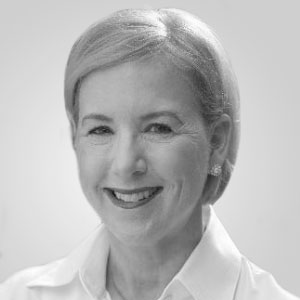
Elizabeth Tinkam
Former Senior Managing Director, Accenture; Professor, University of Washington Foster School of Business
Liz is a former Senior Managing Director with Accenture, with 30+ years’ experience serving global communications, media and technology clients. While at Accenture, Liz held successive leadership positions including growing the largest account within Accenture, leading the global management consulting practice, and launching two new businesses. She led and participated on multiple CEO- initiated task forces to shape Accenture’s strategy as it transformed into the leading global digital consulting and technology company. Currently, Liz is a Professor at the Foster School at the University of Washington. She also serves on several for-profit and not-for-profit Boards as well as advises local technology startups. She is proud engineering graduate of The Ohio State University.

John Zhang, PHD
Chairman, Zhang Foundation
John Zhang is the Chairman of the Zhang Foundation, a non-profit charitable organization registered in San Jose, California. He has previously held executive positions at ADC China, a major system provider for China’s telecommunication infrastructure build-out; Woncore Communications, a privately-owned telecommunications service provider covering call center, GPS, and internet services; Wanxiang Resources, the leading privately owned, investment-driven, and assets-based commodities trading house; and Puxing Energy, the parent company of a variety of businesses in the green and smart energy fields. John received his BA in International Relations in 1987 and a master’s SAIS at Johns Hopkins University. Following Johns Hopkins, he was awarded a PhD from the University of Maryland.
In brief
• Accenture Strategy and Western Digital have collaborated on new research exploring specific use cases that illustrate the essential value of data.
• Platforms addressing the need to monetize IoT devices will give birth to IoT data marketplaces.
• Enabled by blockchain, these marketplaces will facilitate the exchange of IoT data, potentially unlocking more than $3.6 trillion in value by 2030.
Imagine going online—but instead of buying a book or a movie, you’re able to purchase data generated by an IoT device (or collection of devices) somewhere in the world. It could be from sensors on an oil rig in the North Sea bought by government agencies to create better predictive weather models; or from a major airline’s jet engines for researchers to train better machine learning algorithms; or from air-conditioning units in a major office tower in Dubai bought by real estate developers trying to gain a competitive advantage over their competitors when designing new projects.
This is the concept of an IoT data marketplace, and it’s not far from becoming mainstream
$3.6T
Data marketplaces will unlock more than $3.6 trillion in value by 2030
Is an IoT data marketplace really needed?
There are already established channels through which companies can buy and sell data such as the “data-as-a-service” (DaaS) industry which is poised to become a $10.4 billion market by 2021. However, IoT data is not easily sold in this way. The gross of the data transacted in the DaaS industry consists of metadata from specific organizational content that can be easily aggregated and packaged.
IoT data streams are much more difficult to handle as they come from devices that control critical processes, infrastructure, and sensitive information. This makes IoT data a particularly good target for hackers. In fact, security concerns are the number-one inhibitor of IoT adoption. The issues of trust and security are two big obstacles that impact organizations’ willingness to sell and buy IoT data.
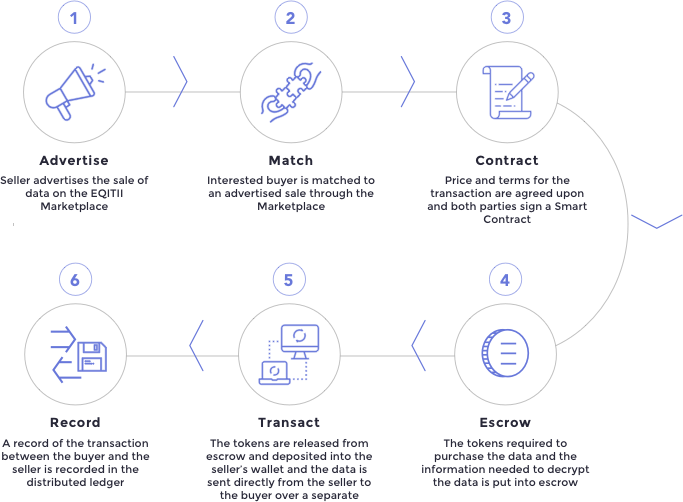
Who’s buying and who’s selling?
Within an IoT data marketplace, like in many commercial transactions, there will be buyers, sellers, and brokers that extract economic value from their assets—which, in this case, is IoT data.
Data sellers: The industries driving the growth of IoT devices include: industrial devices (24.4 percent CAGR), medical devices (20.8 percent CAGR) and automotive/transportation devices (21.4 percent CAGR). Because of this, they have the greatest need—and potential—to monetize data. By monetizing the data collected, these organizations can create new revenue streams with only an incremental additional investment.
Data buyers: For their part, users (buyers) get on-demand access to data they’ve never had before that they can use in a variety of ways. Organizations will in fact be able to acquire existing and real-time data streams to create new, disruptive business models for tomorrow.
The road ahead
Blockchain promises to accelerate the maturity of IoT and other data exchanges by reducing the barriers to accessing data. Doing so increases data’s intrinsic value by allowing innovators to transform data sources from a discrete use (i.e., a single use or single owner) to a multi-use paradigm.
Therefore, it’s not surprising that by 2020, 100 percent of large organizations will buy some type of external data sets to augment their internal data to help them remain competitive. IoT data, accessible 24/7 with the tap of an app, will become yet another type of this “must-have” data as the next wave of IoT reinvents key industries and adds trillions of dollars to the global economy in the Industrial IoT realm alone according to Accenture estimates.
All this ultimately underscores the importance of having a complete environment to capture, preserve, access and transform data.




